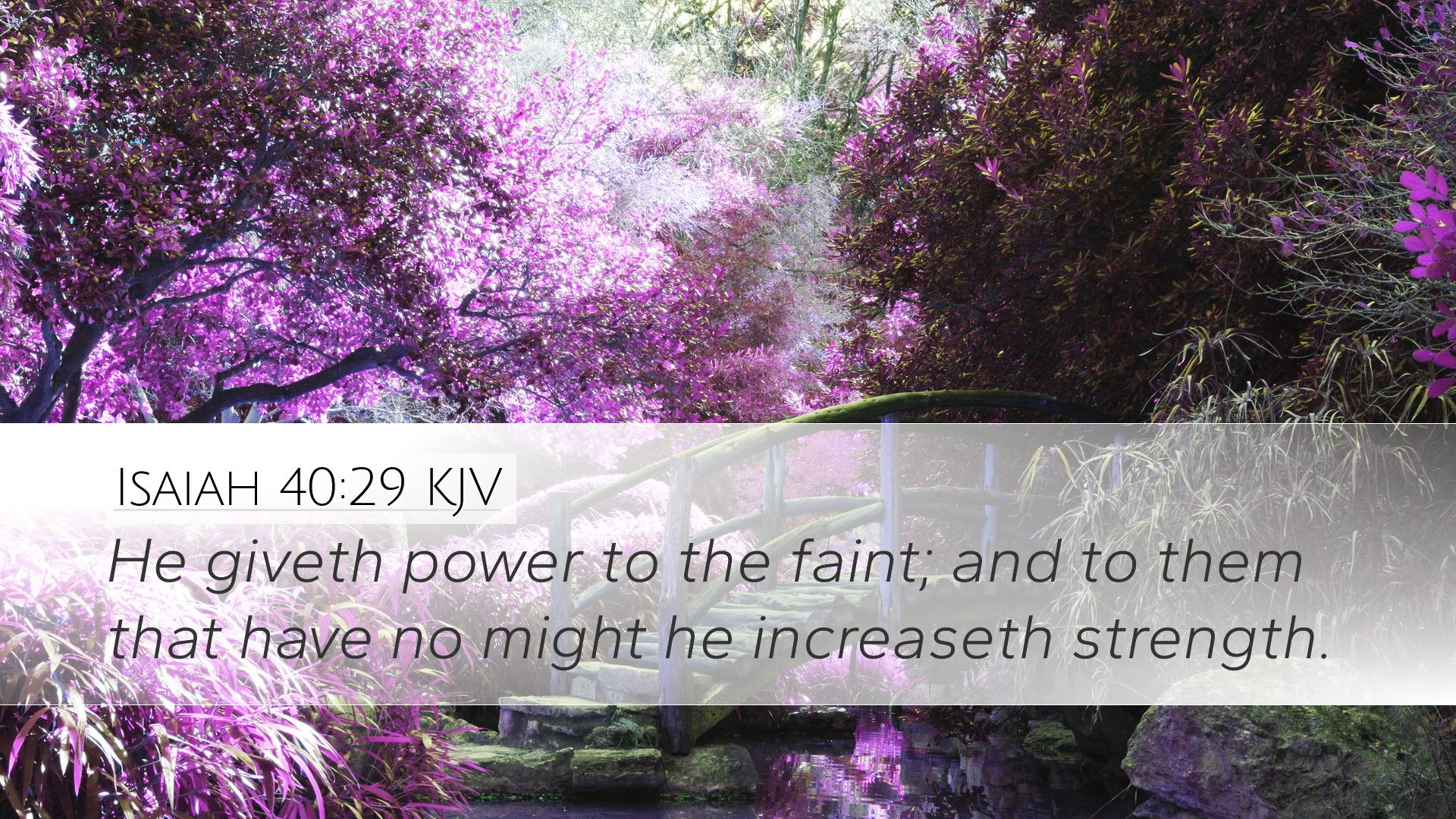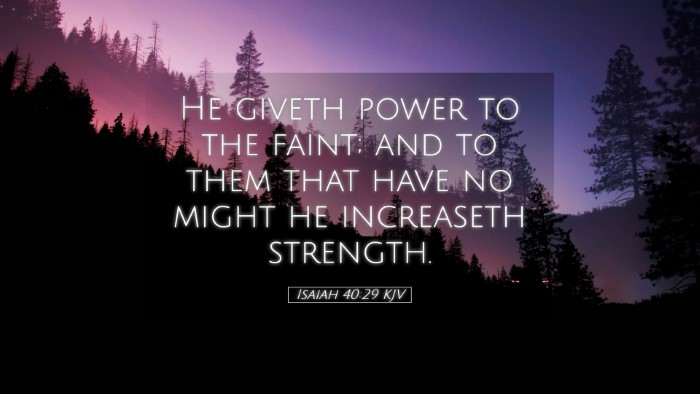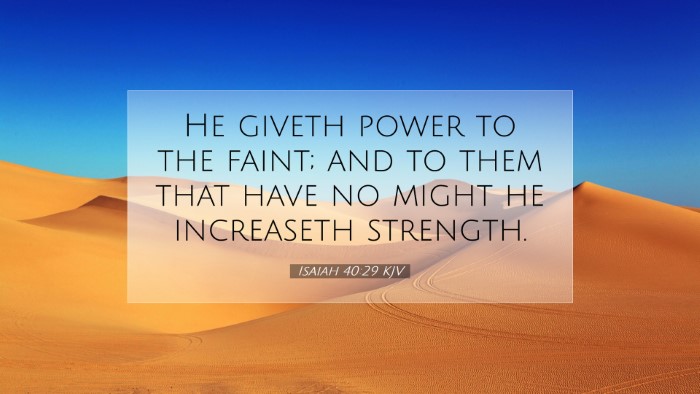Commentary on Isaiah 40:29
Verse: "He gives power to the weak, and to those who have no might He increases strength."
Introduction
The book of Isaiah presents a dual theme of judgment and hope, with chapter 40 marking the transition from a message of impending doom to one of comfort and reassurance for God’s people. In verse 29, the text offers a profound insight into the character of God as a provider of strength to the frail and powerless. This commentary synthesizes insights from various esteemed Public Domain commentaries, elucidating the depth of this verse for pastors, students, and scholars alike.
Contextual Analysis
Isaiah 40 begins with a call for comfort, aimed at a people in exile who have endured significant trauma. The phrases leading up to verse 29 present God as a shepherd and one who cares deeply for His people. This verse serves to underscore the transformative power of divine strength in the lives of those who may feel insignificant or weak.
- Historical Background: The Israelites were experiencing turmoil due to their Babylonian captivity. Isaiah’s message assures them of God's ultimate sovereignty and readiness to restore.
- Spiritual Implications: The concept of 'weakness' in biblical texts often reflects dependence on God. This verse highlights the divine economy where human frailty becomes the channel for God’s strength.
Commentary Insights
Various commentators shed light on the richness of this verse, each contributing valuable perspectives on its meaning:
Matthew Henry
Henry emphasizes the compassionate nature of God, noting that He specifically gives power to the weak. He points out that God does not merely overlook the frail but actively empowers them. Henry states that the strength provided is not contingent upon human merit but upon the divine grace that seeks to uplift the downtrodden.
Albert Barnes
Barnes focuses on the implications of divine strength in human experiences. He elaborates that this promise of strength illustrates God's ability to elevate those whom society considers weak. Barnes emphasizes that the ‘might’ God increases is both physical and spiritual, resonating with believers who may feel overwhelmed by life's challenges.
Adam Clarke
Clarke expands on the idea of ‘might’ in this passage. He suggests that God’s promise is particularly poignant for those who are exhausted and weary. Clarke mentions that the Hebrew wording encapsulates both a physical vitality and an inner robust character that God instills in His followers.
Theological Reflections
This verse raises significant theological reflections regarding God's nature and His relationship with humanity:
- The Nature of God: This verse illustrates God's disposition towards the weak. It strengthens the theological understanding that God seeks to lift up and empower the marginalized.
- The Role of Human Weakness: Weakness is not viewed as a liability but rather as a precondition for divine intervention. The Christian doctrine often highlights that acknowledging our weaknesses allows us to experience God's strength more profoundly.
Practical Applications
For pastors and church leaders, this verse offers rich material for preaching and teaching:
- Encouragement to the Weary: This passage can be a source of hope for congregants who feel burdened by life’s trials, reminding them that God is a source of strength.
- Strength in Community: Leaders can emphasize the importance of community in lifting up those who are weak, reflecting God’s strength through collective support.
Conclusion
Isaiah 40:29 encapsulates a powerful message of hope that speaks to the heart of the human experience. Recognizing our weaknesses is essential in grasping the magnitude of divine strength available to us. As reflected in the insightful commentaries by Henry, Barnes, and Clarke, this verse is not only a promise for personal fortitude but also a clarion call for communal support in seeking God’s power. Ultimately, it serves as a reminder that in our frailty, we are met by a God who grants strength abundantly.


